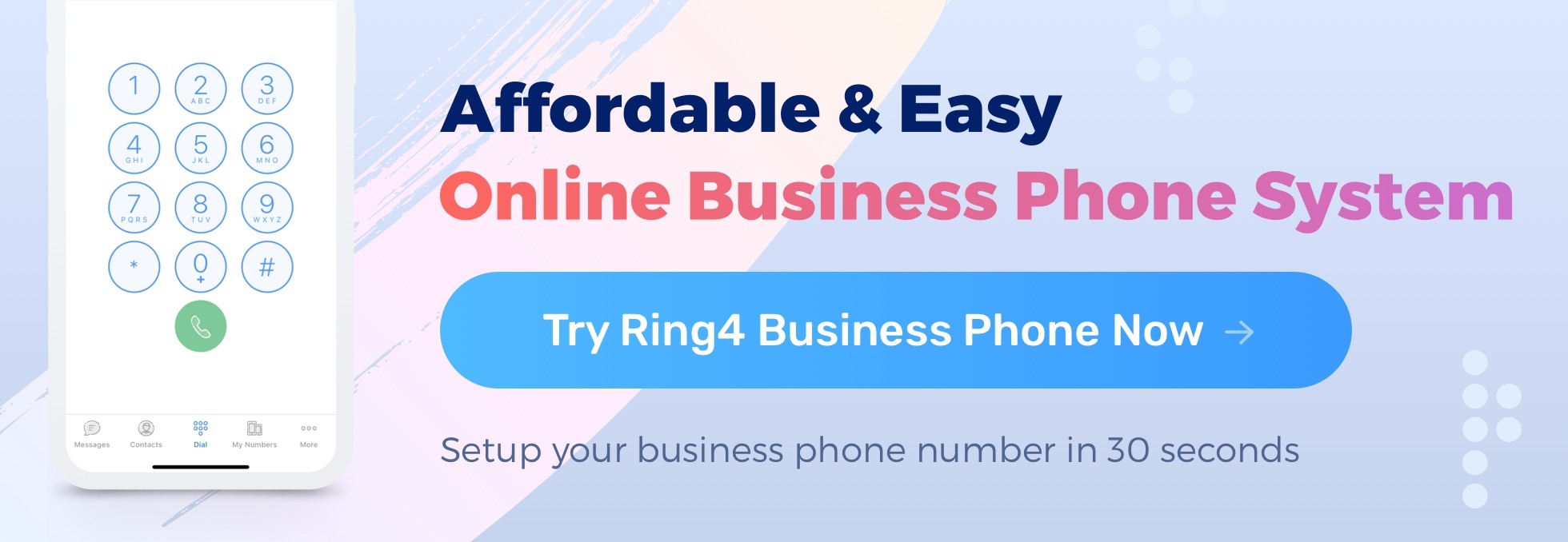Have you ever considered using VoIP for banks? In this post, we’ll explore the various use cases of VoIP for banking and financial institutions. VoIP is used by many banking and financial institutions to provide customer service and to manage their accounts. If you’ve been on the fence about whether or not switching to VoIP makes sense for your company, this post is for you. Let’s dive in!
Top 10 Uses of Voip for the Banking and Finance Industry
VoIP services can provide secure and reliable communication between banks and their customers.
These days, banks, and all businesses for that matter, are regularly looking for ways to improve customer service. Streamlining operations is also critical. That said, VoIP can help banks and financial institutions with both because these services provide secure and reliable communication between banks and their customers.
VoIP allows banks to handle large volumes of calls with ease. With traditional phone systems, it can be difficult to manage a high number of incoming calls at once, leading to long wait times and frustrated customers. However, VoIP systems use advanced call routing techniques that ensure each caller is directed to the right department or agent quickly and efficiently.
VoIP can be used to streamline customer service processes by allowing customers to use voice commands to access information or make transactions.
Among the many benefits of VoIP is its ability to streamline customer service processes by allowing customers to use voice commands to access information or make transactions. With this technology, customers no longer need to navigate through complicated phone menus and wait on hold for long periods of time. Instead, they can simply speak their needs and be quickly connected with the right department or representative.
The use of interactive voice response (IVR) systems streamlines customer service. IVR allows customers to access information about their account or make payments without speaking to a live representative. This can save time for the customer, and it can free up your agents to handle more complex inquiries as well. Additionally, VoIP enables businesses to offer self-service options like appointment scheduling or order tracking through voice commands.
VoIP can enable financial institutions to handle multiple customer inquiries at the same time, allowing them to be more efficient.
The financial industry is characterized by a high volume of customer inquiries. Financial institutions, therefore, need to be equipped with the right tools and resources to manage these inquiries efficiently. That’s where VoIP comes in handy for banking and finance institutions. This technology allows financial institutions to handle multiple customer inquiries at the same time, which can significantly improve efficiency.
With VoIP, financial institutions can route calls to multiple agents simultaneously or direct them to specific departments based on the nature of the inquiry. This means that customers no longer have to wait in long queues or endure extended hold times before speaking with a representative. Instead, they are connected instantly and can get their questions answered quickly and efficiently.
Moreover, VoIP enables financial institutions to monitor call activity in real-time, allowing them to identify areas where they need improvement. For example, if call times are increasing, you can see which departments are being impacted the most and act accordingly. So if the new accounts department is being bombarded with calls, you will quickly see that you need additional support directed there. Or if you’re noticing an uptick in inquiries for your credit card department, you can add support to that area.
VoIP can help mitigate security threats like fraudulent phone calls by leveraging IP technology advancements, such as encryption and authentication.
While VoIP offers significant benefits, it’s no secret that along with innovation comes risks, including security threats like fraudulent phone calls.
Fortunately, VoIP can help mitigate these security threats by leveraging IP technology advancements such as encryption and authentication. Encryption involves converting data into a coded format which cannot be understood without an encryption key. This ensures that sensitive information transmitted over VoIP networks is protected from unauthorized access or interception by hackers or cybercriminals.
Authentication, on the other hand, ensures that only authorized users can access the network or make calls. With strong authentication mechanisms in place, businesses can control who has access to their VoIP systems and limit exposure to fraudsters who try to impersonate legitimate users.
VoIP can help banks and other financial institutions reduce operational costs by eliminating the need for expensive phone plans.
The cost of communication can be a significant expense for banks and other financial institutions. With traditional phone plans, the cost of maintaining a reliable, scalable system can add up quickly. Fortunately, VoIP offers an alternative that can help these organizations reduce operational costs.
Because VoIP allows users to make voice calls over the internet instead of using traditional telephone lines, there is no need for expensive hardware or lengthy contracts with phone providers. Instead, businesses can use their existing internet connections to make high-quality calls at a fraction of the cost.
By adopting VoIP technology, banks and other financial institutions can enjoy significant savings on their communication expenses. This includes reducing hardware costs and eliminating monthly fees associated with traditional phone plans.
VoIP can enable financial institutions to track customer interactions for better customer service and data analysis.
With VoIP, financial institutions can track customer interactions for better customer service and data analysis. One of the major advantages of using VoIP in a financial institution is that all calls can be recorded and stored securely. This feature allows managers to monitor their employees' call quality and productivity levels. It also provides an opportunity to listen to customer feedback and identify areas where improvements can be made. This proactive approach helps the business stay ahead of potential issues before they escalate into larger problems.
Another benefit of VoIP is that it enables financial institutions to analyze customer behavior patterns more accurately by tracking all communication channels with customers such as phone calls, emails or chat messages.
VoIP can provide financial institutions with real-time analytics and reporting, allowing them to make more informed decisions.
With VoIP, financial institutions can monitor and analyze call data in real-time. This information includes the number of calls made, call duration, call quality, and even the geographic location of callers. This enables managers to identify trends and patterns that were previously difficult or impossible to detect. For example, a bank may notice an increase in calls from certain geographic regions during specific times of the day. With this knowledge, they can allocate resources accordingly.
Moreover, VoIP offers advanced reporting features that enable financial institutions to generate customized reports based on their unique needs.
VoIP can enable financial institutions to offer more personalized services to their customers by providing them with access to their account information in real-time.
With VoIP, banks and financial institutions are able to provide more personalized services to their customers by giving them access to their account information in real-time. This technology has enabled customers to stay connected with their accounts no matter where they are located.
VoIP facilitates fast communication between the bank and its clients which ensures that issues are resolved quickly. It also enables banks to offer 24/7 customer support without any additional costs or overheads. Customers can receive alerts on their mobile devices about fluctuations in interest rates or other important updates regarding their accounts as well. All the while, VoIP provides a secure communication channel that encrypts data transmission between the bank and its clients.
VoIP systems can be used to set up virtual meetings and conferences, allowing financial institutions to stay connected with their customers from any location.
Financial institutions can use VoIP systems to set up virtual meetings and conferences with their customers from any location.
This means that customers and employees can participate in meetings without physically being in the same room or location, which can save time and money on travel expenses.
With VoIP systems, participants can connect to the virtual meeting or conference using their computer, smartphone, or tablet, as long as they have an internet connection.
This makes it easier for financial institutions to communicate with their customers and provide them with updates or important information without having to rely on in-person meetings.
VoIP can enable financial institutions to use automated voice recognition for customer identification, improving customer experience and decreasing customer wait time.
With VoIP systems, when customers call into a financial institution's customer service line, an automated system can recognize their voice and identify them based on their unique voice print. This eliminates the need for customers to enter their account information manually, which can be time-consuming and frustrating.
Automated voice recognition can also speed up the customer service process by reducing customer wait time. Instead of waiting on hold to speak with a representative, customers can quickly verify their identity and be connected to the appropriate representative or receive the information they need.
By using VoIP technology for automated voice recognition, financial institutions can provide a more seamless and efficient customer experience. This can ultimately lead to increased customer satisfaction and loyalty.
Additionally, VoIP enabled secure communication channels that comply with industry regulations regarding data privacy and protection.
The implementation of VoIP is not limited to large financial institutions; small businesses benefit as well by being able to offer quick responses during peak business hours without requiring additional staffing or resources. As a result, customers receive faster service and an overall improved experience when interacting with their financial institutions through VoIP technology.
VoIP for Banks and Financial Institutions Just Makes Sense
In conclusion,VoIP is rapidly becoming the communication platform of choice for businesses in the banking and financial sector. It provides a cost-effective, secure and reliable way to ensure customer service and manage accounts. Banks and financial institutions can benefit from the many advantages VoIP offers such as its scalability, ease of use and integration with existing systems. The advantages that VoIP can offer are so great that it seems inevitable that more and more organizations within this sector will be turning to it in the near future.
Want to see for yourself how VoIP can transform your business? Click here to try Ring4’s mobile VoIP solution for free!

